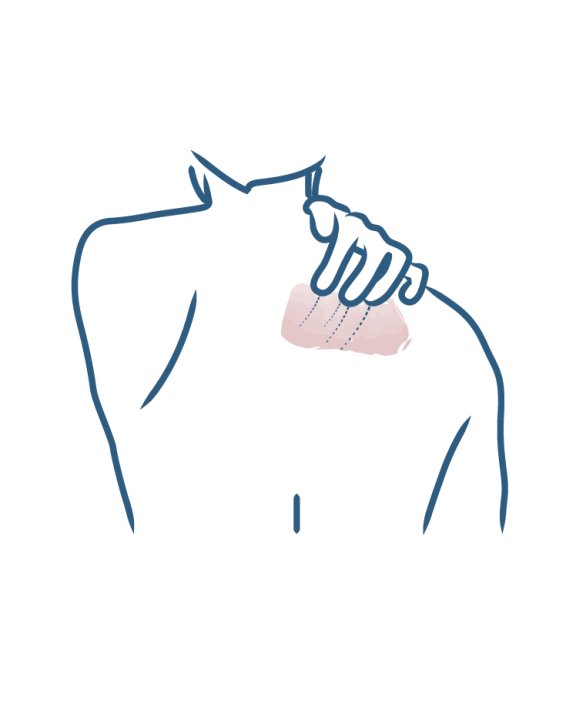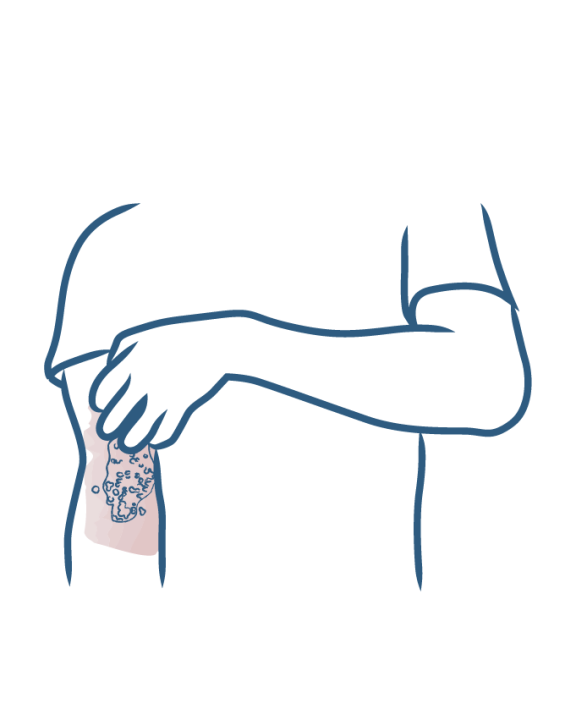What causes eczema?
- SUMMARY
- Eczema
Clothing contact eczema
- Living with eczema day to day
- What are the habits to avoid when you have eczema?
- What soap should be used for eczema?
- Eczema cream, ointment: what should you use?
- Eczema: how to treat itching
- Eczema: what foods should you eat?
- Which detergent should eczema patients use?
- Eczema: how can flare-ups be avoided?
- Eczema: What daily reflexes should you adopt?
- Eczema: can it be cured?
- Swimming pool, swimming when you have eczema?
- What causes eczema?
- Perspiration-induced eczema
- Contact eczema due to nickel and chromium
- Contact eczema due to medication and topical treatments
- Allergy-induced eczema
- Contact eczema due to cleaning products
- Hereditary eczema
- Clothing contact eczema
- Stress-induced eczema
- Contact eczema due to cosmetics
- What is infantile eczema?
- Eczema in babies: what habits should you adopt?
- Cortisone cream to relieve eczema?
- When should you consult a physician about your baby's eczema?
- Eczema in babies and children: the areas most often affected
- How should you treat baby’s and infant’s eczema?
- What soap should be used for babies with eczema?
- Body eczema: hands, feet, arms, back, face, etc.
- Arm eczema (elbows, armpits, forearms)
- Eczema of the eyelids, eyes or palpebral eczema
- Leg eczema or varicose eczema
- Eczema on the neck and nape of the neck
- Eczema around the mouth
- Hand and finger eczema (chronic hand eczema)
- Facial eczema
- Scalp eczema
- Eczema on the back
- Eczema on the stomach and belly button
- Eczema in the ears
- Foot eczema

Clothing contact eczema
Contact eczema is a very common form of eczema, in which skin inflammation results from prolonged contact with an allergen. With each new contact, eczema reappears because the body has developed a specific immune response. Allergens can be found everywhere, including in clothing and accessories.
What is clothing allergy?
Clothing contact eczema, also known as clothing allergy, is an allergic eczema that can occur on any part of the body.
Certain substances present in clothing and accessories have been clearly identified as posing a risk of contact allergy and dermatitis, and are therefore a cause of eczema. Depending on the situation, it may be a leather allergy, a glue allergy, a rubber allergy , a dye allergy or a metal allergy.
In some cases, the lesions do not correspond to contact eczema but to irritative dermatitis. This does not involve the immune system and can affect anyone, allergic or not, who comes into contact with an irritant substance. When it comes to clothing and accessories, friction, perspiration and clothing that is too tight can all contribute to the development of genuine contact eczema.
What is the best way to treat clothing allergy?
Clothing allergy should be treated like any other eczema. An anti-inflammatory cream, most often based on cortisone, makes it possible to fight against skin inflammation. A soothing repair cream applied to the lesions or over the topical corticosteroid reinforces its efficacy. Applying the emollient as a follow-up hydrates the skin and prevents new flare-ups.
However, the best treatment for contact eczema remains avoidance, i.e. the elimination of the offending allergen in order to prevent future flare-ups.
What is the best way to avoid clothing allergy?
Once contact eczema or irritant dermatitis has been diagnosed and the allergen or irritant in question has been identified, preventive measures must be taken to minimize the presence of this allergen or irritant in your wardrobe.
As a general rule, in the event of eczema and sensitive skin, opt for natural materials such as cotton and loose-fitting clothes to limit perspiration and rubbing. Don't forget to wash new clothes before wearing them to remove residues of dyes or other potentially irritating and/or allergenic chemicals.
Please note that many patients suffer from a combination of causes of eczema: weather conditions, perspiration, stress, pollen, food, etc. It is always best to have your treatment at hand to quickly combat the discomfort.
More information
- Discover Contact eczema due to cleaning products
What causes eczema?
Contact eczema due to cleaning products
- Discover Contact eczema due to medication and topical treatments
What causes eczema?
Contact eczema due to medication and topical treatments
- Discover Allergy-induced eczema
What causes eczema?
Allergy-induced eczema
- Discover Contact eczema due to nickel and chromium
What causes eczema?
Contact eczema due to nickel and chromium
- Discover Stress-induced eczema
What causes eczema?
Stress-induced eczema
- Discover Contact eczema due to cosmetics
What causes eczema?
Contact eczema due to cosmetics
- Discover Perspiration-induced eczema
What causes eczema?
Perspiration-induced eczema
Our care routines
Skin prone to atopic eczema, contact eczema, chronic eczema and/or, eyelid eczema
Dermatological expertise
To better understand your skin and hair, discover our exclusive content and innovative care products designed to improve your quality of life..





